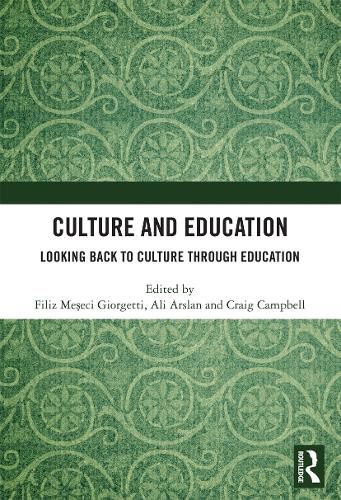Readings Newsletter
Become a Readings Member to make your shopping experience even easier.
Sign in or sign up for free!
You’re not far away from qualifying for FREE standard shipping within Australia
You’ve qualified for FREE standard shipping within Australia
The cart is loading…






This book explores the fascinating and complex interactions between the ways that culture and education operate within and across societies. In some cases, education is imagined as an integrated part of general cultural phenomena; in others, educational interventions become the means for transforming the cultural circumstances of different populations. The contributors to this volume show how certain educational practices produce new cultural and professional knowledge; discuss the impacts of initially foreign educational ideas and institutions on established cultural institutions in very different societies; and explore the impacts of modernity and modern educational ideas on more traditional gendered and religious practices and communities.
The book also provided striking examples of when these impacts were not benign. Increasingly powerful twentieth-century governments attempted to use education and schools to produce new, reformed citizens suitable for their newly created colonial, national, socialist, and fascist states. The expectation was that cultural and social transformation might be engineered, in major part, through schooling.
This book was originally published as a special issue of Paedagogica Historica.
$9.00 standard shipping within Australia
FREE standard shipping within Australia for orders over $100.00
Express & International shipping calculated at checkout
This book explores the fascinating and complex interactions between the ways that culture and education operate within and across societies. In some cases, education is imagined as an integrated part of general cultural phenomena; in others, educational interventions become the means for transforming the cultural circumstances of different populations. The contributors to this volume show how certain educational practices produce new cultural and professional knowledge; discuss the impacts of initially foreign educational ideas and institutions on established cultural institutions in very different societies; and explore the impacts of modernity and modern educational ideas on more traditional gendered and religious practices and communities.
The book also provided striking examples of when these impacts were not benign. Increasingly powerful twentieth-century governments attempted to use education and schools to produce new, reformed citizens suitable for their newly created colonial, national, socialist, and fascist states. The expectation was that cultural and social transformation might be engineered, in major part, through schooling.
This book was originally published as a special issue of Paedagogica Historica.